- What Are Fake UGGs?
- Red Flags of Fake UGGs: The Product
- Red Flags of Fake UGGs: The Listing
- What to Do If You Purchased Fake UGGs
- Where to Buy Real UGGs
- Where Are Fake UGGs Sold?
- Frequently Asked Questions
With millions of fake UGGs floating around, you'll need to do your homework before shopping online to avoid getting scammed. Fortunately, spotting a fake UGG boot or slipper from the real deal isn't difficult once you know what to look for.
What Are Fake UGGs?
UGG boots have a distinct style, and there's nothing wrong with brands jumping on the trendy sheepskin bandwagon. However, there's a difference between selling alternatives and fakes.
Alternative UGG boots share a lot in common with original ones, but they don't pretend to be the original. They usually use cheaper materials and style variations to create a more affordable shoe for those who can't afford UGG's hefty price tag.
UGG boots usually refer to the general boot style, regardless of the brand. In this article, we refer to genuine UGG boots made by the brand UGG®, not to be confused with the Australian brand UGG Since 1974.
On the other hand, Fakes work hard to create knockoff UGGs under the brand's name. As a result, these shoes lack authentic materials and craftsmanship, leading to quality and durability issues.
"Some of these boots are produced to resemble Timberland and UGG boots in design and color, but significantly, are generic," reads a complaint after the arrest of a counterfeiter in New York.
"That is, these boots are imported into the United States without the inclusion of logos that are trademarks registered with the United States Patent and Trademark Office." Afterward, scammers stamp these shoes with false UGG logos to sell them for a premium.
In short, there's nothing wrong with alternative UGG look-alikes—but there's a lot wrong (and illegal) about fake UGG boots and fake UGG slippers.
Red Flags of Fake UGGs: The Product
There isn't a quality standard when it comes to fake UGGs—some can be made reasonably well, while others may have undeniable flaws (think OGG instead of UGG). Regardless of where fakes are sold, there are some common things to look for in a knockoff, including the following:
- "Made In" label
- Security label
- Outsole
- Hanging tags
- Packaging
- Fur lining
- UGG logo
"Made In" Label
UGG boots are made in China, Vietnam, The Philippines, Cambodia, The Dominican Republic, and the U.S.—they're not made in Australia or New Zealand. So despite the original UGG Australia logo, UGG boots aren't made there.
If you see an UGG boot that claims to be made in Australia or New Zealand, it's likely counterfeit.
NOTE: "UGG Since 1974" is an Australian-owned and operated business that does sell UGG boots (referring to the overall design of the boot, not the brand) manufactured in Australia.
Sewn-In Security Label
Nearly a decade ago, UGG® boots began to include a sewn-in Q.R. code label. You can scan this code to be taken to UGG's website to verify its authenticity. There's also a holographic sun logo that'll change from black to white when you rotate it 90 degrees.
If your shoe doesn't have these security features, it's likely a fake.
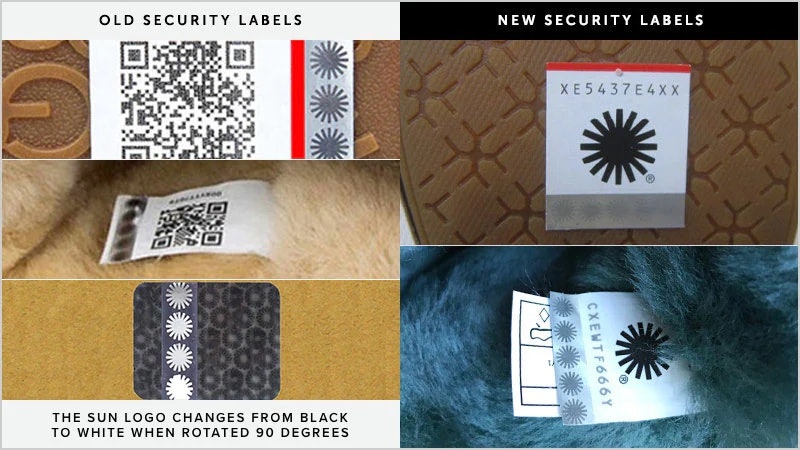
Soles
Newer models use a sun-like tread pattern instead of a zigzag pattern. So if you're buying brand-new UGGs made this year, there's a high chance it'll have a sun-like tread pattern.
Authentic UGG boots have sturdy yet flexible soles. It's built to offer support while also providing a generous bend in the forefoot. If your UGG boot's outsole refuses to budge, it's likely a knockoff.
Hanging Tags
UGG boots don't use hanging tags on their original products. Some scammers use well-made convincing hangtags to sell counterfeits—if you see a hang tag, proceed with caution.
Packaging of Fake UGGs
UGG products never arrive in a bag—not even a fancy, UGG-branded bag. These bags are only provided in in-store purchases at an UGG store. Genuine UGG boxes also feature the tell-tale Q.R. code and accurate image of the product inside.
Fake UGG boxes often don't include the product logo to create the labels at scale. They also typically don't have a Q.R. code.
Fur Lining
UGG's genuine sheepskin has the fur naturally adhered to the suede. The fur is not an inner lining, so it should never pull apart. If you can separate the suede from the inner fur lining, then the UGGs aren't genuine.
Additionally, real UGG boots are made with genuine sheepskin. Fakes often use polyester or other cheaper materials for the fur inside.
Stitching
Counterfeit UGGs will have stitching that's noticeably worse quality than genuine UGGs. They may also have double stitching, while a pair of real UGG boots only have a single row of stitching.
UGG Logo
Look closely at the logo on the boots, which are sewn onto the back of both the right and left shoe. Look for noticeable signs of a knockoff, such as misspellings and fraying threads. Unfortunately, many counterfeiters have become pros at copying the logo, so fakes can't always be easily spotted by looking at the logo.
Red Flags of Fake UGGs: The Listing
Once you've learned the tell-tale signs we went through above, it's easy to distinguish real UGGs from fakes. However, it's not so simple when you're buying UGGs online.
Scammers often use fake product images in their listings, making it impossible to detect fakes by looking at the photos alone. You'll need to do some research to double-check the seller's authenticity and the listing. Here's how:
- Double-check sender identity: Ensure the sender's name, email address, and other digital forms of identification are consistent.
- Scrutinize the reviews: Don't just take a 4.7-star product rating at face value—dig deeper into the reviews to see if they're legit.
- Check for typos: Scammers aren't copywriters. You'll often find grammar errors and typos in their product listings. Use a plagiarism checker to see if they lifted the product description from UGG's website or another credible retailer.
- Investigate the images: Make sure the seller is using photos they took. If the pictures look like they were taken from UGG's website, then be wary moving forward.
Do a Reverse Image Search to Find Fakes
Before handing over any money, do a reverse image search on the photos of the UGGs that the seller uses in the listing. This will show you if the seller stole the images from another website. If they did reuse existing photos they found online, it could be a sign that they aren't selling genuine products or they don't have any product at all.
What to Do If You Purchased Fake UGGs
Even with all the know-how in the world, you might accidentally buy a fake pair of UGGs from a scam listing. Don't panic! Depending on where you purchased the UGGs, there are potentially guarantees to protect your purchase:
- eBay: Contact eBay about their money-back guarantee.
- Amazon: File an A-to-Z Guarantee with Amazon's customer service.
- Craigslist: Craigslist can't recover your money, but they can protect you and others from future scams—contact them about the fraudulent seller and listing.
- Facebook Marketplace: Facebook Marketplace doesn't have any money-back guarantees or protections.
- Walmart Marketplace: Walmart's Marketplace Promise can help you track purchases and request refunds.
Beyond contacting the e-commerce site, you should reach out to the FBI's digital division and report the issue to your credit card company. If the selling platform doesn't give you a refund, you can potentially request a chargeback from your credit card company.
Where to Buy Real UGGs
UGG boots are a popular piece of footwear, which means you can find authentic pairs in various places. Here are a few of the top retailers you can trust to buy your next UGG product from:
Real UGGs Aren't Cheap
Authentic UGG boots usually cost around $100-$200 for a new pair. Fake UGG boots, on the other hand, are typically sold for much cheaper, even as low as $25. Some retailers may mark up the price of fake products to make them seem more genuine, so always be on the lookout for red flags.
Where Are Fake UGGs Sold?
Scammers sell counterfeit UGGs on various e-commerce platforms and local listings. However, authentic sellers also use these platforms to sell real UGG boots (and often significantly cheaper). Here are some of the most common places you'll find knockoff UGGs:
- eBay
- Amazon
- Craigslist
- Facebook Marketplace
- OfferUp
- Walmart Marketplace
- Alibaba
- Etsy
UGG boots are relatively expensive, making these platforms a go-to for customers looking for great deals on these popular shoes. However, you don't need to avoid shopping on these e-commerce sites—you just need the know-how to spot the fakes from the real deals.

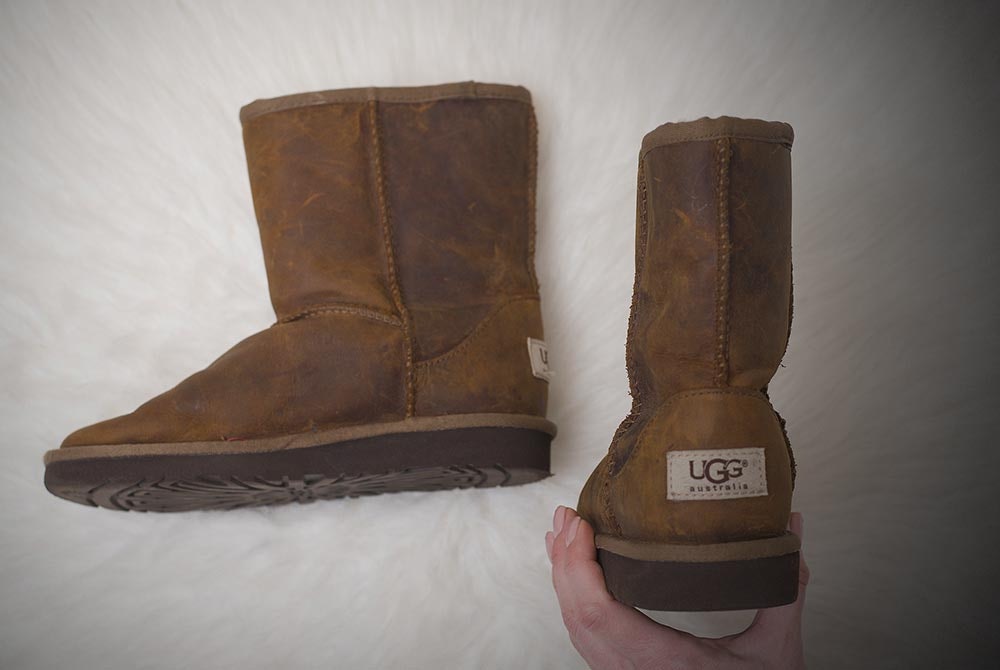
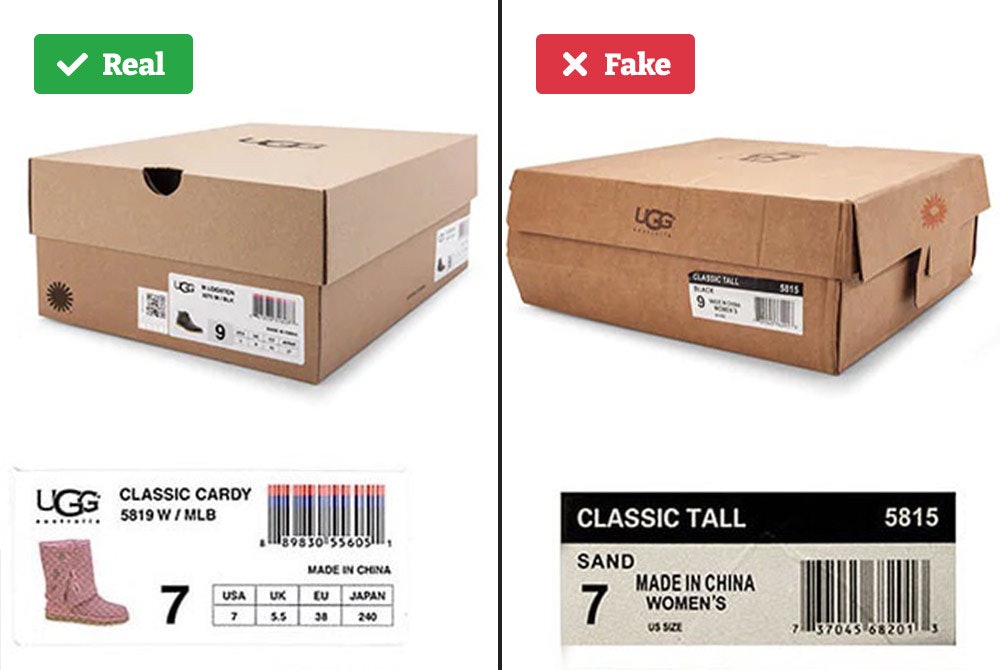
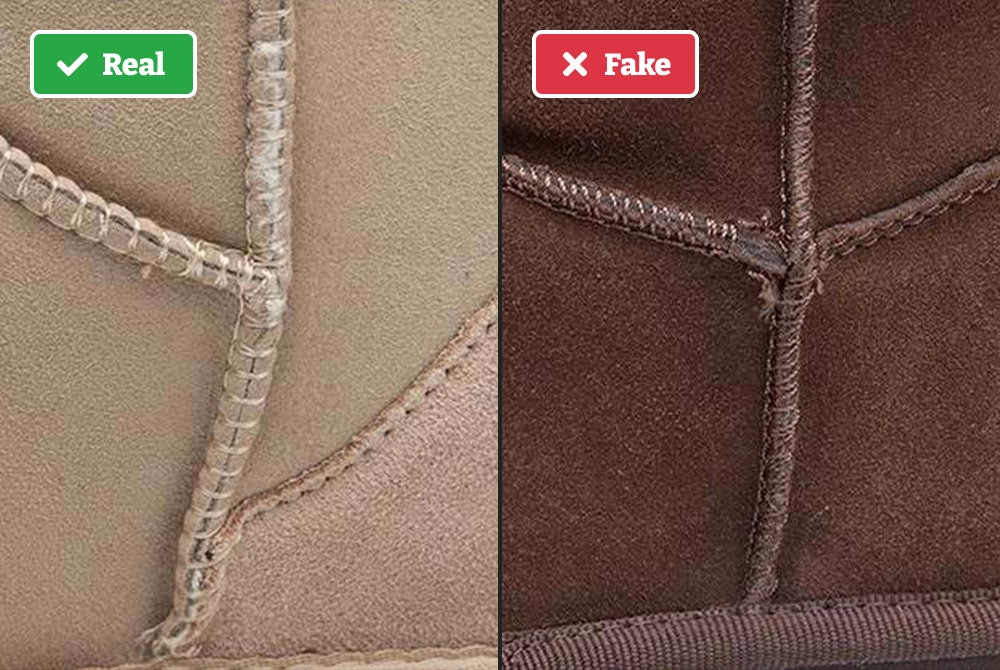
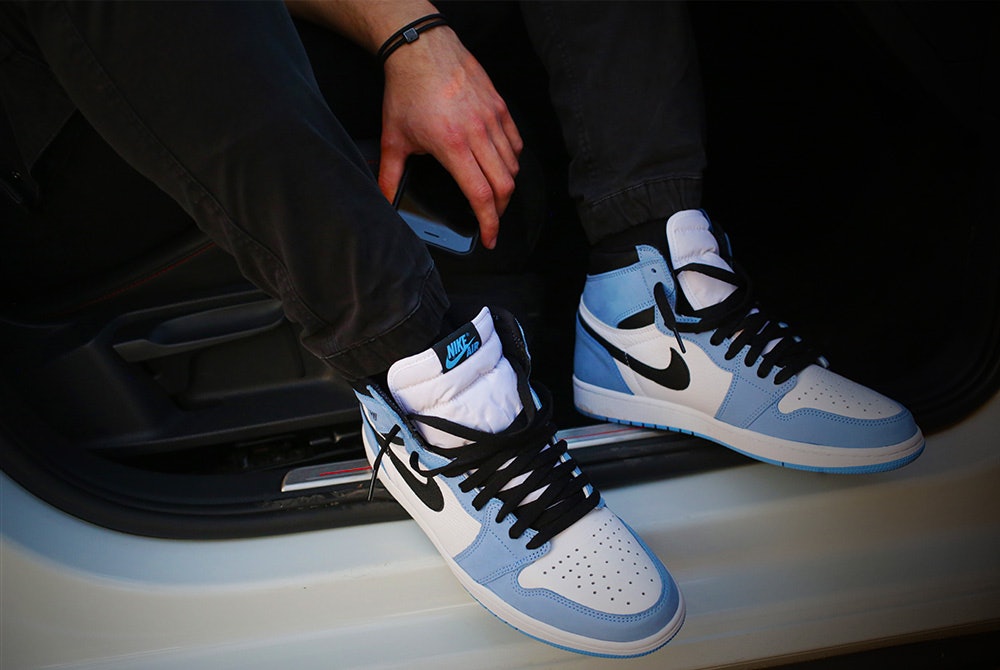







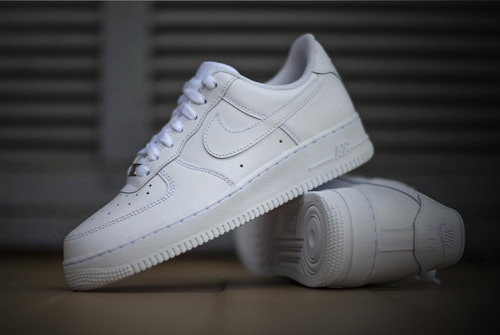
Comments